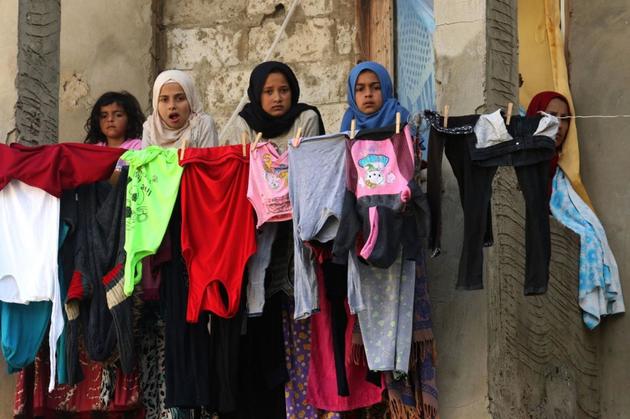In recent years, the European Union has protected itself from migrant flows from poverty-stricken and conflict-ridden countries by building what has come to be known as Fortress Europe, including policies of remote control or policing at a distance. Lebanon is a case in point. As Middle East Eye reports, the country is home to more than 1.5 million Syrian refugees and 200,000 Palestinians, giving it the largest refugee population per capita in the world; around a third of Lebanon’s inhabitants are refugees.
The EU has used humanitarian and development aid to outsource the management of refugee flows, sending more than €2.3bn ($2.8bn) in aid to Lebanon since 2011. EU aid to Lebanon dovetails neatly with the amount of media attention received by the Syrian crisis, suggesting a correlation with fears of being “invaded” by refugees.
The budget of the EU humanitarian aid office in Beirut doubled the day after the body of Syrian boy Alan Kurdi was found on a Turkish beach, an EU official based in Beirut told MEE on condition of anonymity. The EU has faced criticism for primarily focusing on stopping the influx of refugees to Europe.
European aid has been supplemented by increased security support focused on Lebanon’s land border with Syria, and improving security at Beirut airport and the port of Tripoli. Since 2012, the international community, led by France and the UK, has spent around $1.6bn on security assistance to Lebanon.
By turning Lebanon into a buffer state, the EU has left it to carry the humanitarian burden for all of Europe, raising several important issues.
Firstly, the efficiency of such a system is questionable, as international support for the Syrian crisis has not been commensurate with the immense needs. And Lebanon is buckling under its worst economic crisis in decades, with almost half of the country living below the poverty line and unemployment soaring to 35 percent.
Security prism
The recent Beirut explosion has exacerbated the humanitarian crisis in Lebanon and had a dire impact on Syrian refugees, about a quarter of whom live in Beirut. But the EU strategy was already doomed in the long run, as the Lebanese government has consistently opposed refugee integration.
A lack of legal status, restricted access to the labour market and conflicting policies and practices have “pushed many Syrians into illegality and informal structures”, according to a report from the NGO Lebanon Support.
Secondly, the European response has promoted an exclusively security-focused approach to refugees, who are depicted as potentially dangerous elements, rather than as victims of war or asylum-seekers.
Since 2015, the resettlement of Syrian refugees in Europe has been increasingly intertwined with security concerns over potential terrorist threats. Refugees who formerly lived in Islamic State-held territories have faced public resistance.
The security prism through which refugees have been viewed has contributed to the normalisation of xenophobic rhetoric in Europe. In one recent example, Rachida Dati, a former European Parliament member, linked the far-right shootings in Hanau this year to Germany’s migration policy.
A political choice
Finally, promoting the narrative of a “refugee crisis” is problematic because it depoliticises the EU response, making it appear as the only viable option. In reality, the choice is deeply political.
By referring to a “European refugee crisis”, politicians have fostered a new sense of emergency along Europe’s borders, justifying the EU’s militaristic response. By depicting refugees as an existential threat, officials create a “framework where everything is allowed”, the EU official based in Beirut told MEE.
This deeply Eurocentric perspective ultimately deflects responsibility away from the EU. European governments could have chosen to take advantage of resettlement channels for Syrian refugees offered by the UN; integrating non-EU migrants would have benefitted an ageing Europe, supporting the pension system in a region where the number of working people is shrinking.
Yet, less than three percent of the Syrian refugees who arrived in Lebanon have been resettled in Europe - even as more than 90 percent of Syrian refugees are hosted by the neighbouring states of Lebanon, Turkey and Jordan.
Staying the course
By foisting the task of accommodating refugees onto countries such as Lebanon while publicising their humanitarian pledges, European governments convey the impression that the crisis has been solved. But the EU cannot continue to bankroll this inefficient and unethical system.
Amid the coronavirus crisis, the Syrian displacement catastrophe has almost disappeared from European news, while Covid-19 provides a justification for further strengthening borders. The dire situation in Lebanon has made the situation even more hopeless, exacerbated by the recent deadly explosion, which has left many questioning how the country will ever recover.
Yet even this state of emergency has not been enough to convince European leaders to change course on their policy towards Syrian refugees.






